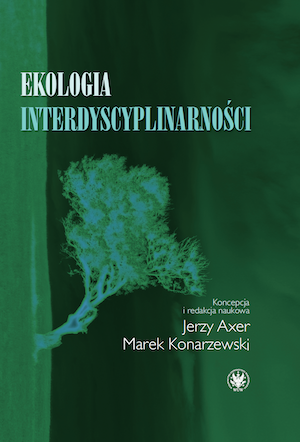Recepcja koncepcji symbiogenezy Lynn Margulis w nowym materializmie na podstawie tekstów Donny Haraway i Myry Hird
The Reception of Lynn Margulis’ Endosymbiotic Theory in New Materialism on the Basis of Donna Haraway and Myra Hird’s Texts
Author(s): Krzysztof Skonieczny
Subject(s): Anthropology, Cultural history, Cultural Anthropology / Ethnology
Published by: Wydawnictwa Uniwersytetu Warszawskiego
Keywords: social sciences; evolution; Lynn Margulis; Donna Haraway; Myra Hird
Summary/Abstract: The endosymbiotic theory developed in the late 1960s by a biologist Lynn Margulis, according to which eukaryotic cells and multicellular organisms were created by the cyclical symbiosis of simpler cells, complicated the neo-darwinian picture of the evolution as a process driven solely by competition. Although Margulis’ discoveries coincided with increased interest in environmental and animal issues – the so-called animal or environmental turn – their proper reception within these sciences took thirty years, until the times of so-called new materialisms, a group of theories based on earlier post-structuralist thought, albeit rejecting its constructivism and seeking agreement with natural sciences. The endosymbiotic theory was an attractive inspiration for new materialists, who rejected – characteristic of Western philosophy – the understanding of matter as a passive material, and were skeptical about neo-darwinism they suspected to be eugenic and sexist. Author analyses the reception of Margulis’ concept in the works of two new materialists, Donna Haraway and Myra Hird. Haraway is inspired by symbiogenesis in "The Companion Species Manifesto: Dogs, People, and Significant Otherness" and in one of the chapters of "Staying with the Trouble. Making Kin in the Chthulucene" when she formulates the concept of community of different human and non-human players influenced by Whitehead’s ontology of relations. Hird in her book "The Origins of Sociable Life. Evolution after Science Studies" shows how symbiogenesis can (or should) influence social sciences and understanding of the interpenetration of evolutionary and cultural forces.
Book: Ekologia interdyscyplinarności
- Page Range: 143-151
- Page Count: 9
- Publication Year: 2021
- Language: Polish
- Content File-PDF

